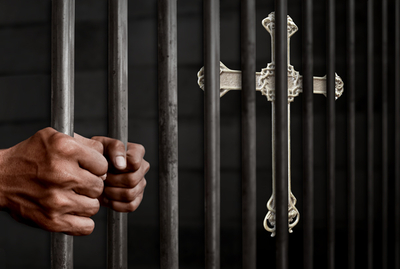Persecution of Christians in Iran, Part Two
by Ioannis E. Kotoulas
IPT News
May 23, 2023
Reprinted from The Investigative Project on Terrorism (IPT)
Historical Christian communities and converts in Iran
Iran’s Christian and other minority religious communities are subject to monitoring, restrictions, constant harassment and judicial procedures. Recognized minority religions, according to Article 13 of Iran’s constitution, include Zoroastrianism, Judaism, and Christianity. In general, non-Islamic religious minorities face wide discrimination and are subjected to arrest and excessive prison sentences. Iran’s Jewish population shrank from 100,000 before the 1979 Islamic Revolution to less than 10,000 today. Iran also persecutes smaller religious communities, including Baha’is, Yarsanis and Ahmadis.
Although Christianity is recognized as a minority religion in Iran’s constitution, legal protection is available only to churches that offer services in the ethnic minority languages of Armenian and Assyrian and not to Persian-speaking churches. Holding liturgies, sermons, or distributing Christian literature in Farsi is forbidden, for fear of further spread of Christianity among the general population.
Therefore, Persian language churches are not allowed to operate. In essence, Armenian and Assyrian Christians in Iran are theoretically protected by the state. But in reality, they are treated as second-class citizens since they are not allowed to interact with Christian converts or worship in Persian.
The most intense persecution is reserved for Christian converts. They are not allowed to hold house services and are subject to continuous harassment and monitoring from Iranian authorities, leading in many cases in arrests and imprisonments.
Despite the certain oppression they will face, Iranians continue converting to Christianity. It may be a mode of cultural resistance to the theocratic regime. Converts, sometimes called “Muslim Background Believers,” face everyday discrimination and are systematically deprived of their right to freely practice a faith of their choosing, in violation of Iran’s obligations as a signatory of the International Covenant on Civil and Political Rights. Christian converts face repeated arrest, detention, and trumped-up blasphemy charges or “crimes against national security,” when they attempt to hold services or possess religious materials in Persian.
Articles 498 and 499 of the Islamic Penal Code already prohibit membership in groups that “aim to perturb the security of the country.” According to Iranian law, evangelism, missionary work, even distribution of Christian literature in Persian and converting to Christianity can be a crime meriting prison. In 2021, the regime added a new provision to the penal code, with a minimum two-year sentence for anyone who commits “any deviant educational or proselytizing activity that contradicts or interferes with the sacred law of Islam.” Last year, 134 Christians were arrested and 61 more were detained, and many sent to Evin prison, for “engaging in propaganda that educates in a deviant way contrary to the holy religion of Islam.”
Portraying Christians as Israeli/Western agents
In 2021, state-controlled Fars News described a network of Christian converts disbanded by Iranian state authorities as carrying out the “activities of a Zionist network.” It also said that the “primary aim of this network, connected with the services of the Zionist regime, was to create moral depravity and promote conversion” among the Iranian population.
Iranian-Assyrian Christian Dabrina Bet-Tamraz recently recounted how Christians in Iran as treated as potential spies.
As a little girl, Bet-Tamraz remembers being followed and her father being questioned, all because they are Christian. As an adult, the surveillance continued, along with frequent detentions and interrogations. During those sessions, she was threatened with prison, rape, and even death if she did not cooperate with the Islamic Republic’s religious monitors. In 2009, the government shut down her church. Police tried to coerce her into spying on her own people. She left the country a year later, gaining asylum in Switzerland. Since then, her parents were arrested and sentenced to 15 years for acting as a national security threat and recruiting spies. They fled, too.
But the plight of Iran’s Christians has been largely overshadowed by the ongoing anti-regime stemming from Mahsa Amini’s death, said Irina Tsukerman, a human rights and national security lawyer and editor in chief of the Washington Outsider.
Bet-Tamraz’s story is all too common, she said. “Christians are considered to be apostates. In some cases, whether the Christian has newly found his faith or has come from a family and community practicing for generations, belonging to the faith alone is sufficient to result in harassment or arrests.”
In addition, church leaders are harassed, religious services in Farsi are restricted, and there are extrajudicial murders.
“In prison, Christians detained on fake charges of national security related concerns are often subjected to physical and psychological torture,” Tsukerman said. “Prayer meetings and Bible studies are construed as political activities. And despite Christian denominations, such as the Armenian church-goers and others being legally exempt from nation-wide alcohol bans, there have been cases of persecution for the use of alcohol for religious rituals, such as on three Iranian Christians being sentenced in 2016 to 80 lashes for drinking Communion wine and to a six-year prison sentence for promoting house churches and ‘Zionist’ Christianity.”
Systemic oppression of religious minorities is advocated by the Supreme Council of the Cultural Revolution (SCCR), an unelected body established to spread Islamist values throughout society that is answerable only to Supreme Leader Ali Khamenei.
The Islamic Revolutionary Guards Corps (IRGC), a U.S.-designated Foreign Terrorist Organization, conducts raids on house-churches, arresting and interrogating their members to create a climate of fear and dissuade Iranians from becoming Christians. Even when they are cleared of any charges, Christian converts are forced into “re-education” classes on Islam.
School textbooks, meanwhile, promote anti-Western, anti-Jewish themes. The spread of Christianity is cast as a threat to Muslim nations, with the Ottoman Empire offered as an example.
In Iran, as in most Islamic countries, it is illegal for Muslims to convert to another religion. According to traditional Islamic jurisprudence, apostasy is punishable by death, a sentence implemented in the past, although the Islamic Republic has never codified the crime of apostasy and the final verdict is left to judges. Moreover, the persecution against converts is clear, including charges of speaking against the state and acting against national security and violent detention. In January 2022, the Ministry of Intelligence in Dezful summoned eight Christian converts and pressured them to change their religion. IRGC intelligence forces raided the church where about 10 Christian converts had gathered to celebrate Christmas.
By now, there are only four Persian-speaking churches still permitted to operate, according to Article 18’s 2023 annual report on rights violations against Iranian Christians. But those churches cannot accept new members and have not been allowed to reopen since the Covid pandemic, the report said.
Mosques were allowed to re-open in May 2020.
The Iranian regime clearly violates the right to religious freedom as guaranteed under international law. In August, eight United Nations experts expressed their concerns about the scale of repression against Iran’s religious minorities, including Christian converts.
“The international community cannot remain silent while Iranian authorities use overbroad and vague national security and espionage charges to silence religious minorities or people with dissenting opinions, remove them from their homes and effectively force them into internal displacement,” the experts said.
In addition, state pressure on converts to return to Islam clearly contradicts Article 18 of the Universal Declaration of Human Rights, which reads: “Everyone has the right to freedom of thought, conscience and religion; this right includes freedom to change his religion or belief, and freedom, either alone or in community with others and in public or private, to manifest his religion or belief in teaching, practice, worship and observance.”
Iran’s theocratic regime has not in any meaningful way moderated its undemocratic position on gender equality or human rights of religious minorities, most notably Christians.
“Arguably the prioritizing of the nuclear deal with the Islamic Republic over pressure on human rights concerns, such as religious freedom, has emboldened the authorities to crack down on vulnerable religious minorities,” Tsukerman told the IPT.
The decades-long rule of the theocratic regime that has isolated Iran from the world is continuing its oppressive record against Christians. Iranian Christian Marzi Amirizadeh wrote about her experiences in Evin prison after being sentenced to death in 2009 for apostasy. Human rights groups took up her case, which helped spare her from that fate.
In a recent interview on Israeli television, she recalled her mistreatment in the same detention center where Amini died.
It is “an underground dungeon,” she said. No light and no fresh air is let in. She slept on a cold cell floor and often was kept naked by guards. The presiding judge told her that he would ensure her death sentence was carried out.
This is the punishment Iran finds reasonable for leaving Islam for Christianity.
RELATED:
Persecution of Christians in Iran, Part 1 – A CROOKED PATH
~~~~~
IPT Senior Fellow Ioannis E. Kotoulas (Ph.D. in History, Ph.D. in Geopolitics) is Adjunct Lecturer in Geopolitics at the University of Athens, Greece. His latest book is Geopolitics of the War in Ukraine.




![Complete In Prayer: Jack Hibbs on Spiritual Warfare [This completes the series]](https://acrookedpath.com/wp-content/uploads/2024/04/0-71-500x383.jpg)


Leave a Reply, please --- thank you.